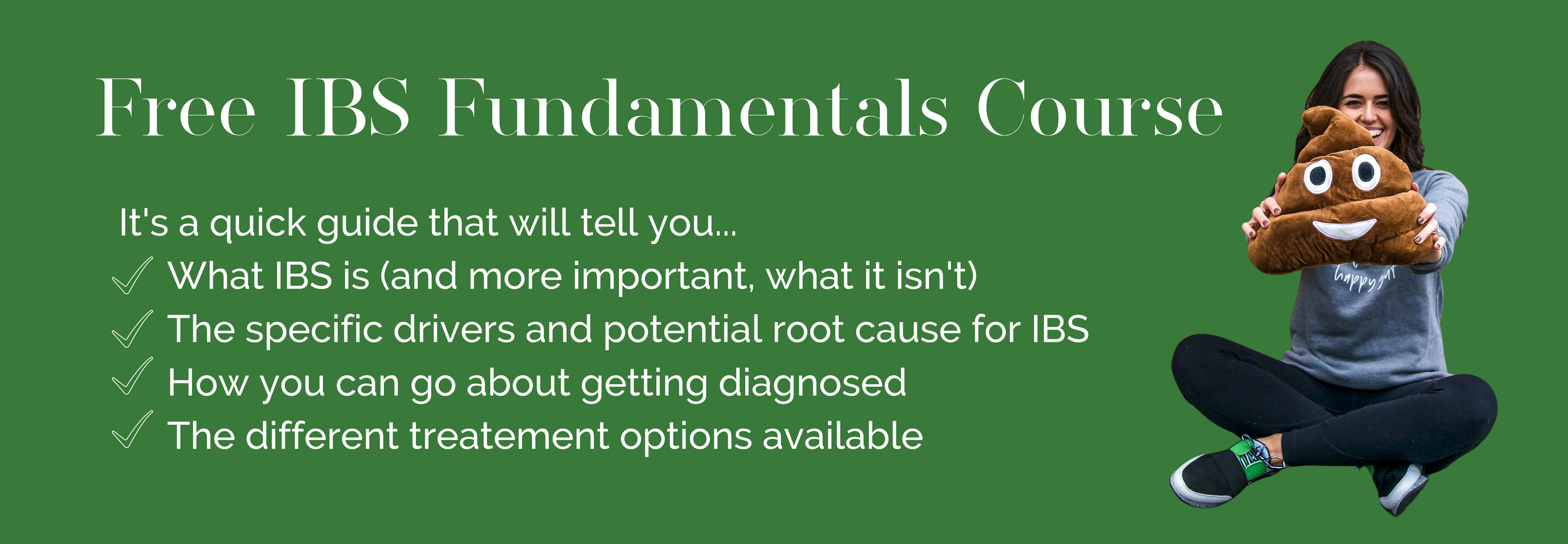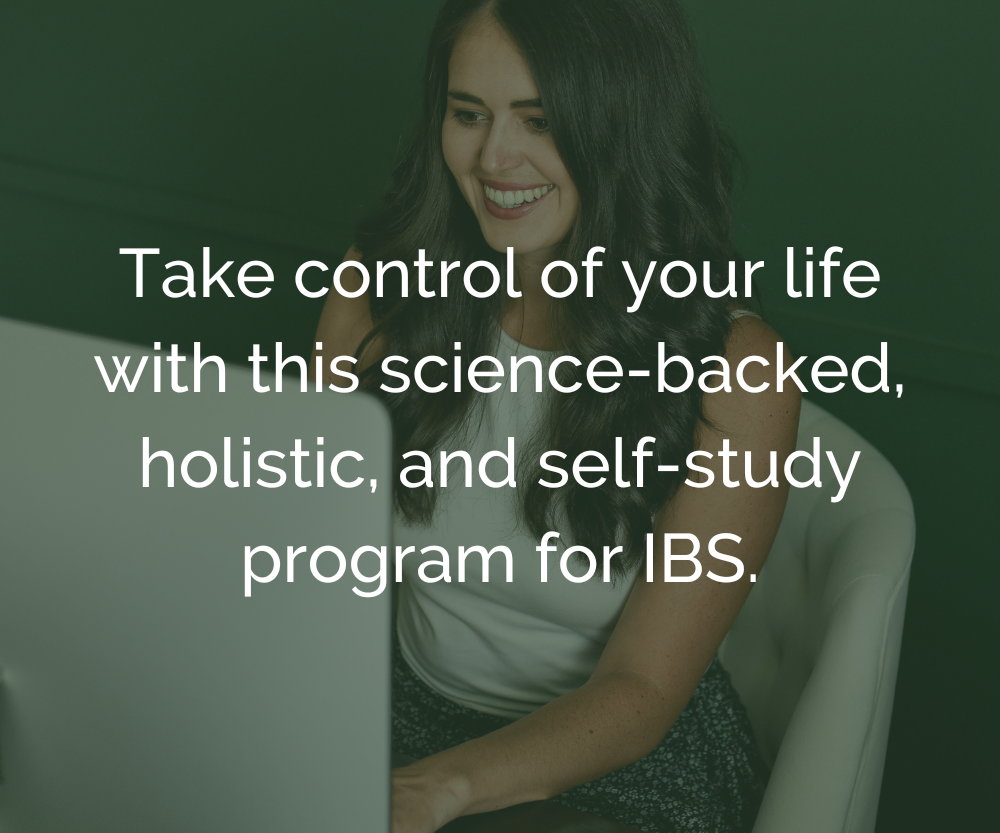Why eating "healthier" is making you feel worse
Does it seem like your digestion gets worse when you eat healthier?
First off, “healthy” eating looks different for everyone and that’s important to say because what others may deem as “healthy” may not work for you and that’s okay. Often, trying to fit into someone else’s definition of health may leave you feeling defeated and ashamed. In reality, finding what is best for your body should be empowering, leaving you confident. My goal of this article is to get you closer to that.
Listen to The Gut Show episode on this topic on iTunes or Spotify, watch the video below, or keep reading to learn more!
Okay, so healthier habits are making digestion worse. Why?
One reason, and one I see most often, is increasing fiber too much and too quickly. Fiber is the non-digestible part of plants (legumes, grains, fruits, vegetables, nuts, and seeds.
Fiber feeds your gut microbes and they produce beneficial byproducts and gas as part of fermentation. This is important for gut health, but if your gut microbiome isn’t very diverse (meaning those microbes you need aren’t there) or if your microbes haven’t been eating those fibers in a long time… this can lead to more symptoms and excess gas.
If your gut is already moving too slowly and you’re constipated, more fiber before your gut is ready may cause a traffic jam, both from the gas buildup and from the fiber adding more bulk to your stool. This will leave you feeling more constipated, bloating, and uncomfortable.
And if your gut is moving too quickly with diarrhea or there is inflammation or damage present (from IBD, celiac disease, infection, etc.), the fibers may cause more irritation leaving you uncomfortable and with more symptoms.
It’s not that fiber will never work for your gut, but that your gut has to be ready for it and needs to adjust to it slowly.
What to do: make sure your gut motility is supported first (aka address constipation or diarrhea) and increase fiber slowly over time. Around 3-4 g every 4-7 days is an approach that works for many.
What’s your poop personality? Find out here!
Increase in plant foods
Another reason I see symptoms get worse with health changes is due to an increase in plant foods.
This goes in line with fiber, because plants contain fiber. But if your body has adjusted well to fiber, we can take a deeper look at how you’re eating plants and what you’re choosing.
If you have been adding a lot of salads and raw plants, and if you’re not chewing enough… these may not be breaking down enough which will cause more gas and bloating.
If you’re adding more cruciferous vegetables (cauliflower, broccoli, cabbage, kale), these are also harder to break down and more gas causing. And if you’ve added a lot of fruits and fruit juices, these can speed the gut up more leading to cramping and diarrhea.
Not only that, but many plants contain FODMAPs (learn more about those here), which are common IBS triggers. So an increase in these, especially if you haven’t been eating them, may make digestive symptoms worse. Just like fiber, plants are good to add in and are helpful to your gut health and overall health. But your body may need to adapt to them and you may need to be creative with how you add them in based on your history and where your gut is starting.
What to do: add plants in slowly as you do with fiber and cook them down as much as you can as you start. When you do eat them, focus on chewing well, to applesauce consistency as a goal.
Powders and supplements
Another reason healthy eating can cause symptoms is through the addition of powders and supplements. Many contain other ingredients that can be more difficult to digest, including FODMAPs and artificial sweeteners. And many are hard to break down due to processing, which may cause more symptoms.
What to do: assess all supplements and powders you’re taking in with your dietitian to personalize based on your unique needs and your response.
Non-food factors
And thinking outside of what you’re eating, if you are exercising more, this could also be leading to more symptoms. This may be due to less sleep in order to wake up early for the workout, which then leads to poorer digestion, typically constipation and bloating. If you’re doing high intensity exercise like HIIT classes, spin, kickboxing, etc., that can cause more stress on the body and lead to more digestive symptoms and discomfort.
What to do: assess your current exercise routines to see if you could adjust your intensity, and prioritize your sleep in your routines.
In addition to all of the above, there are also habits that actually aren’t helpful but tend to come along with “healthy” lifestyles. This includes long periods of fasting, restricting + binging behaviors, and increased stress and fear over foods. All of these could cause symptoms in different ways, by impacting circadian rhythms, gut secretions and motility, as well as the gut-brain connection.
If you want to make changes to your diet and life in order to reach your health goals AND you need support with your digestion to feel your best as you work on this… our team can help!
Are you frustrated with your IBS symptoms? Do you desire to be confident in your food choices? Do you want to have a healthier relationship with your body and diet? Are you ready to take control of your IBS?
Guides:



